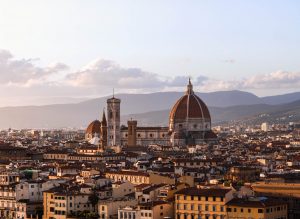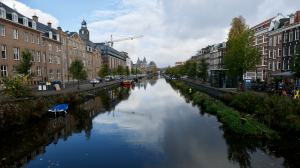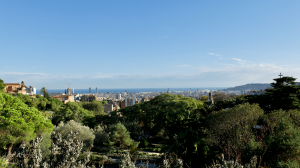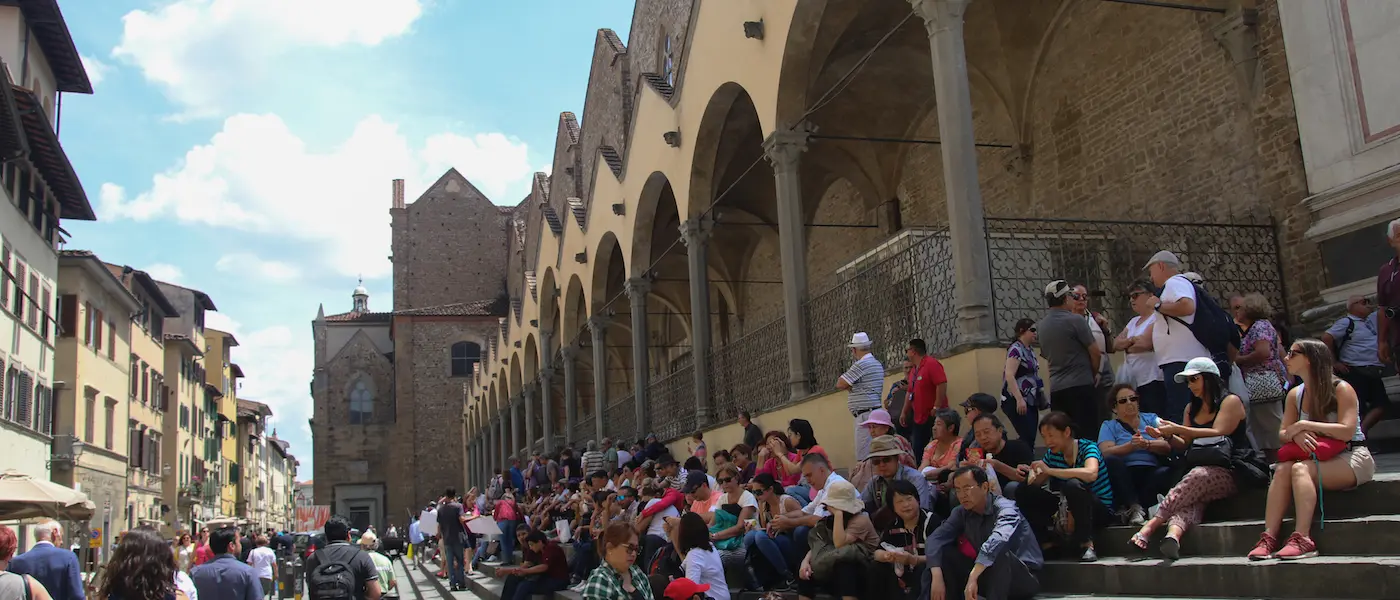This may come as a huge surprise, but not all Europeans love tourists. Luckily in my experience about 95% of the locals I have interacted with while traveling have been not only helpful but very patient with my unilingualism. For example, many shop owners and workers I have interacted with have gone out of their way to ask questions about where I’m from and how my time in Florence has been, which has been strangely comforting. Despite my positive experiences, I’ve discovered there are some pretty serious impacts stemming from tourism that I hadn’t even considered.

Overlooking Florence
This past weekend my roommates and I went down to Amsterdam to check out some museums and take a peek at the infamous red-light district. When we arrived at the hostel, the guy checking us in at the front desk, Vlad, gave us a very detailed rundown of some current events in the city. Among these events was an upcoming vote to move the red light district to a different neighborhood, much further from the heart of Amsterdam. The way Vlad put it, once COVID hit and most of the world went into lockdown, locals got to see what it was like to not have young tourists streaming in to essentially party every weekend in the red light district. This sense of calm didn’t last too long as the world started opening up more, but local opposition to the red light district grew because of it. Despite this momentum, there is still the economic aspect that has prevented much change. Since the red light district provides billions of euros for the local economy every year, it’s not hard to imagine that transplanting the entire neighborhood to a different location could harm the businesses that rely on tourists to survive.

One of the canals in Amsterdam
Another example of the impacts of tourism I encountered recently was on a trip to Barcelona, Spain. While on a walking tour of the city, our guide, Leon Parris (best tour guide I’ve ever had, check him out), explained some of the social responses to tourism. On one side there are very pro-tourism voices pointing out the economic impact that tourism is responsible for, making up about 13% of the city’s GDP. This was especially noticeable after COVID halted tourism for months, costing Barcelona around 2.7 billion euro. On the other hand, the critics of mass tourism point out that a reduction of annual tourism could potentially lead to a solution for the current lack of affordable housing in Barcelona. Arguments like these show the constant dialogue taking place concerning tourism in cities all over the world.

Overlooking Barcelona
As a tourist myself, my opinion carries little weight in discussions like these, but learning about these issues that I was blissfully unaware of gives me some crucial perspective when I visit countries across Europe. It goes without saying that any time you find yourself in a foreign country you should keep in mind the impact you have and try to be respectful of the surrounding culture, that way locals have a reason to want you to return.
Isaac is a Fall 2021 Florence student from Colorado State University.


Comments
No comments yet